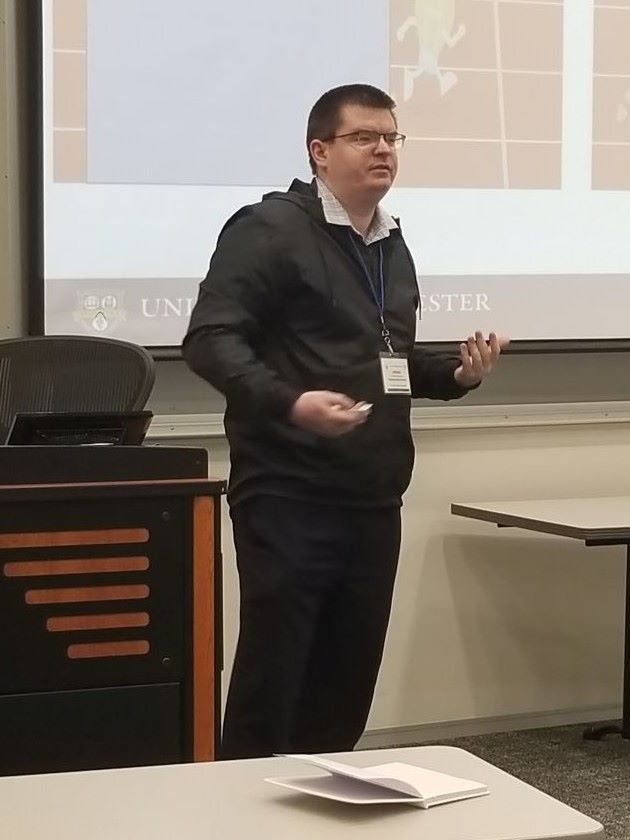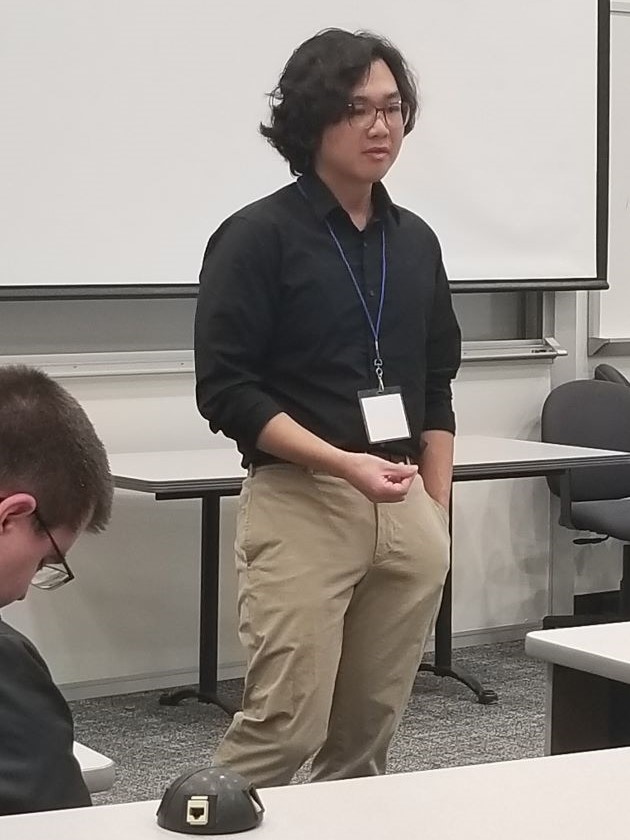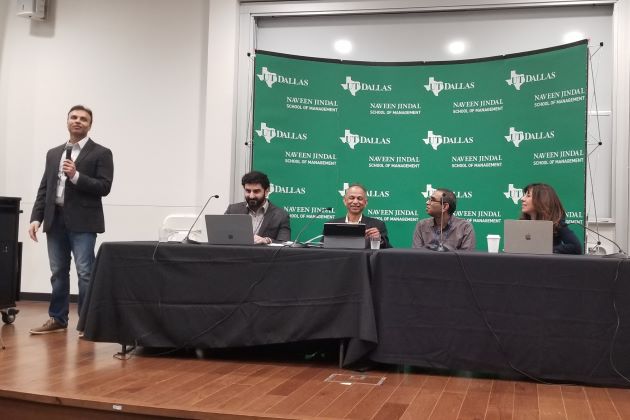
Artificial intelligence technology and its effect on all aspects of business operations and management was the focus of the recent Biz AI Conference at the Naveen Jindal School of Management. Nearly 130 attended the March 29-31 event at The University of Texas at Dallas.
Dr. Harpreet Singh, an associate professor in the Information Systems Area at the Jindal School, and Rohit Aggarwal, a professor in Ois Operations and Info Systems at the University of Utah’s David Eccles School of Business co-chaired the event.

AI is rapidly entering various industries, yet its full potential remains largely untapped by users. According to conference organizers, AI has already led to accelerated changes that improve efficiency, cut costs, and optimize processes across multiple business functions, including marketing, sales, human resources and accounting. AI can automate routine tasks, enhance decision making and serve many other purposes.
The conference was planned to inform attendees about AI’s many possible uses, as well as some of the biases against AI and the challenges.

Conference sessions focused on a range of topics, including information from a study titled “AI and AI-human based Salesforce Hiring Using Conversational Interview Videos” by Dr. Howard Dover, a clinical professor in the Marketing Area and director of the Center for Professional Sales at JSOM; Ishita Chakraborty, the University of Wisconsin-Madison; K. Sudhir, Yale School of Management; and Khai Chiong, an assistant professor in the Marketing Area at the Jindal School.
One of the highlights of the conference was a panel discussion featuring EICs and senior editors from the top journals.

Panelists were professors Olivier Toubia, editor-in-chief (EIC) at Marketing Science; Suprateek Sarker, EIC at ISR; Ahmed Abassi, senior editor (SE), at ISR; Maytal Saar-Tsechansky, SE at MISQ; K. Sudhir, former EIC at Marketing Science; and Hemant Bhargava, deputy editor at Management Science.
A key point in their discussion was the challenge of researchers to submit their papers for publication fast enough to keep pace with rapid changes in AI.
Those attending the conference represented business schools at universities across the United States, including Jordana George, an assistant professor of information systems at Texas A&M University’s Mays Business School.
“I’m here to try to get my head around where academia is going and how business schools are going to make a difference using AI,” she said.
Jindal School alumnus Kaiyue Liu, a graduate teaching assistant working toward a PhD in Information Systems and Operations Management at UT Arlington, attended the conference to let people know more about his research and network with other professionals. Liu received an MBA with a business analytics concentration from the Jindal School.
“I’m hoping to gain some exposure for my research and to have discussions about it with others,” he said.

Singh and others are working toward organizing the profusion of information from the conference in a central location. He described the event as “very successful.”
“This was the first year of the conference and we have had very positive responses from the community,” he said. “We hope it will serve as a nexus for business school researchers to discuss the transformative role of AI in modern business practices and its future implications.”





